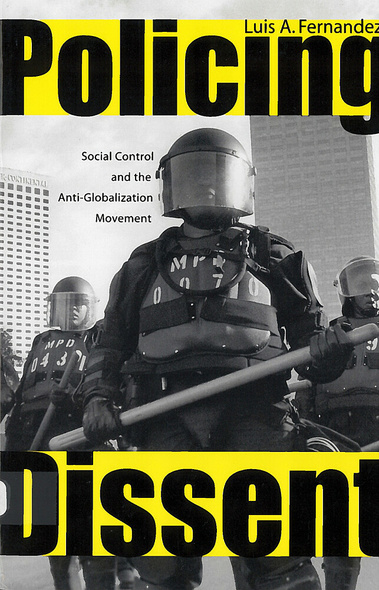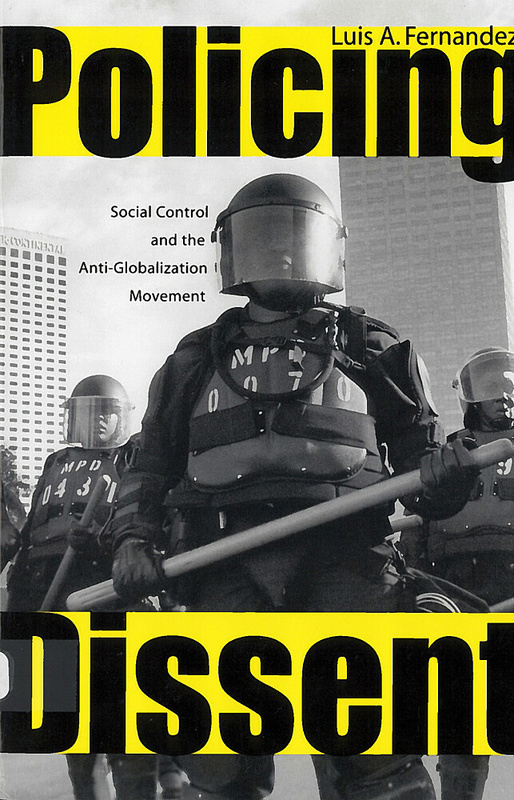Policing Dissent
Social Control and the Anti-Globalization Movement
In November 1999, fifty-thousand anti-globalization activists converged on Seattle to shut down the World Trade Organization’s Ministerial Meeting. Using innovative and network-based strategies, the protesters left police flummoxed, desperately searching for ways to control the emerging anti-corporate globalization movement. Faced with these network-based tactics, law enforcement agencies transformed their policing and social control mechanisms to manage this new threat.
Policing Dissent provides a firsthand account of the changing nature of control efforts employed by law enforcement agencies when confronted with mass activism. The book also offers readers the richness of experiential detail and engaging stories often lacking in studies of police practices and social movements. This book does not merely seek to explain the causal relationship between repression and mobilization. Rather, it shows how social control strategies act on the mind and body of protesters.
Policing Dissent is one of the best books I've come across in any field that examines the intersections of globalization, dissent, and late-modern social control.
Luis Fernandez's Policing Dissent is a fascinating and courageous book—a book where the crackling energy of contemporary street protest animates a careful analysis of late modern social control.
A fascinating look at a vitally important movement for social change—and the obstacles it faces. Important reading for self-reflective artists.
This book is frightening, urgent—crucial reading.
Fernandez's survey of new protest policing helps us all feel the chill—not just of mass mobilizations but of dissent itself.
An important contribution to our understanding of the state's response to unrest that puts the scholarship on protest policing into contact with the repressice reality.
Luis Fernandez's Policing Dissent is a first-hand account of the nature and effect of social control practices utilized by police against the emergent American anti-globalization movement. ... a worthwhile piece of research.
Policing Dissent is one of the best books I've come across in any field that examines the intersections of globalization, dissent, and late-modern social control.
Luis Fernandez's Policing Dissent is a fascinating and courageous book—a book where the crackling energy of contemporary street protest animates a careful analysis of late modern social control.
A fascinating look at a vitally important movement for social change—and the obstacles it faces. Important reading for self-reflective artists.
This book is frightening, urgent—crucial reading.
Fernandez's survey of new protest policing helps us all feel the chill—not just of mass mobilizations but of dissent itself.
An important contribution to our understanding of the state's response to unrest that puts the scholarship on protest policing into contact with the repressice reality.
Luis Fernandez's Policing Dissent is a first-hand account of the nature and effect of social control practices utilized by police against the emergent American anti-globalization movement. ... a worthwhile piece of research.
1. Protest, Control, and Policing
2. Perspectives on the Control of Dissent
3. The Anti-Globalization Movement
4. Managing and Regulating Protest: Social Control and the Law
5. This Is What Democracy Looks Like?: The Physical Control of Space
6. "Here Come the Anarchists": The Psychological Control of Space
7. Law Enforcement and Control
Notes
Bibliography
Index






